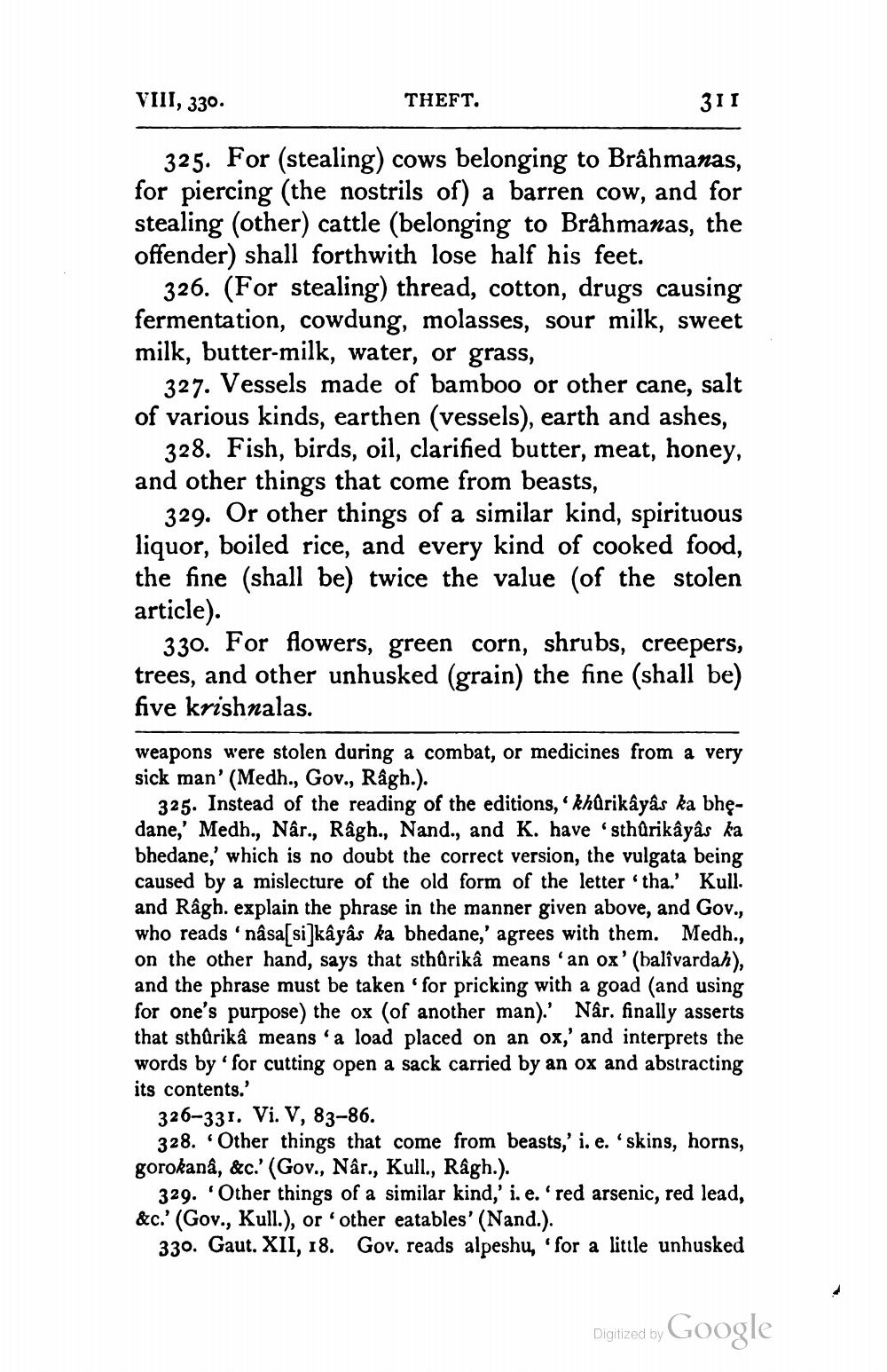________________
VIII, 330.
THEFT
311
325. For (stealing) cows belonging to Brâhmanas, for piercing (the nostrils of) a barren cow, and for stealing (other) cattle (belonging to Bråhmanas, the offender) shall forthwith lose half his feet.
326. (For stealing) thread, cotton, drugs causing fermentation, cowdung, molasses, sour milk, sweet milk, butter-milk, water, or grass,
327. Vessels made of bamboo or other cane, salt of various kinds, earthen (vessels), earth and ashes,
328. Fish, birds, oil, clarified butter, meat, honey, and other things that come from beasts,
329. Or other things of a similar kind, spirituous liquor, boiled rice, and every kind of cooked food, the fine (shall be) twice the value (of the stolen article).
330. For flowers, green corn, shrubs, creepers, trees, and other unhusked (grain) the fine (shall be) five krishnalas. weapons were stolen during a combat, or medicines from a very sick man' (Medh., Gov., Râgh.).
325. Instead of the reading of the editions, khûrikâyâs ka bhędane,' Medh., Nár., Râgh., Nand., and K. have sthürikâyâs ka bhedane,' which is no doubt the correct version, the vulgata being caused by a mislecture of the old form of the letter tha. Kull. and Râgh. explain the phrase in the manner given above, and Gov., who reads 'nâsa[si]kâyâs ka bhedane,' agrees with them. Medh., on the other hand, says that sthûrikâ means 'an ox' (balîvardah), and the phrase must be taken for pricking with a goad (and using for one's purpose) the ox (of another man).' Når. finally asserts that sthûrikâ means a load placed on an ox,' and interprets the words by 'for cutting open a sack carried by an ox and abstracting its contents.
326–331. Vi. V, 83-86.
328. Other things that come from beasts,' i. e. skins, horns, gorokanâ, &c.' (Gov., Nâr., Kull., Râgh.).
329. Other things of a similar kind,' i.e. red arsenic, red lead, &c.' (Gov., Kull.), or other eatables' (Nand.).
330. Gaut. XII, 18. Gov, reads alpeshu, 'for a little unhusked
Digitized by Google




